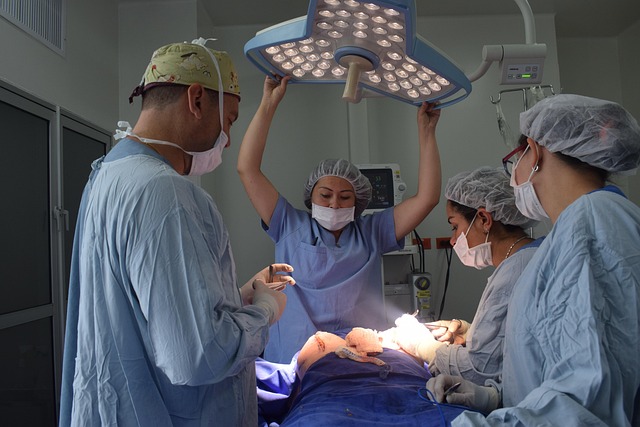Tummy Tuck Surgery: What You Need to Know About Abdominoplasty
A tummy tuck, also known as abdominoplasty, is a popular cosmetic surgical procedure designed to improve the appearance of the abdominal area. This surgery removes excess skin and fat from the middle and lower abdomen, tightening the muscles of the abdominal wall. The result is a flatter, more toned stomach that many people desire but struggle to achieve through diet and exercise alone.

Who is a Good Candidate for Tummy Tuck Surgery?
Ideal candidates for tummy tuck surgery are individuals in good overall health who have excess abdominal skin and fat that hasn’t responded to diet and exercise. This often includes women who have had multiple pregnancies and people who have lost significant amounts of weight. It’s important to note that a tummy tuck is not a weight loss solution, but rather a body contouring procedure. Candidates should be at or near their ideal weight and have realistic expectations about the results.
What are the Risks and Potential Complications?
As with any major surgery, tummy tucks come with potential risks and complications. These can include infection, blood clots, poor wound healing, and adverse reactions to anesthesia. Specific to abdominoplasty, risks may include seroma (fluid accumulation), changes in skin sensation, and asymmetry or unsatisfactory aesthetic results. It’s crucial for patients to discuss these risks thoroughly with their plastic surgeon and follow all pre- and post-operative instructions carefully to minimize complications.
How Long is the Recovery Process After a Tummy Tuck?
Recovery from a tummy tuck is a gradual process that requires patience. Most patients need about two weeks off work and should avoid strenuous activities for at least six weeks. During the initial recovery period, patients may experience discomfort, swelling, and bruising. Compression garments are typically worn to support the healing tissues and minimize swelling. While some results are visible immediately, it can take several months for all swelling to subside and for the final results to be apparent.
What are the Long-term Results of Abdominoplasty?
When performed by a skilled plastic surgeon, a tummy tuck can provide long-lasting results. The removed excess skin and fat will not return, and the tightened abdominal muscles will continue to provide a flatter stomach profile. However, significant weight fluctuations or future pregnancies can affect the results. To maintain the benefits of the surgery, patients are encouraged to follow a healthy lifestyle with a balanced diet and regular exercise.
What is the Cost of Tummy Tuck Surgery?
The cost of tummy tuck surgery can vary widely depending on factors such as the surgeon’s experience, geographic location, and the extent of the procedure. Here’s a general overview of tummy tuck costs in different regions:
| Region | Average Cost Range |
|---|---|
| United States | $6,000 - $12,000 |
| United Kingdom | £4,500 - £7,000 |
| Canada | CAD 8,000 - CAD 15,000 |
| Australia | AUD 8,000 - AUD 20,000 |
Prices, rates, or cost estimates mentioned in this article are based on the latest available information but may change over time. Independent research is advised before making financial decisions.
It’s important to note that these prices typically do not include anesthesia fees, operating room facilities, or other related expenses. Many plastic surgeons offer financing options to help make the procedure more affordable. When considering the cost, it’s crucial to prioritize the surgeon’s qualifications and the quality of care over price alone.
A tummy tuck can be a transformative procedure for those struggling with excess abdominal skin and weakened muscles. While it requires careful consideration and a significant recovery period, many patients find the results to be well worth the investment. As with any cosmetic surgery, it’s essential to consult with a board-certified plastic surgeon to discuss your goals, understand the procedure thoroughly, and determine if you’re a suitable candidate for abdominoplasty.
This article is for informational purposes only and should not be considered medical advice. Please consult a qualified healthcare professional for personalized guidance and treatment.






